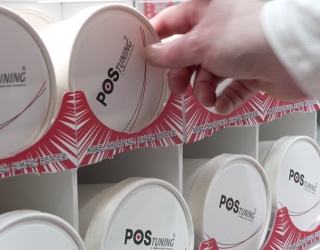We are all now customer service representatives, with most of us preferring to resolve issues with companies by heading online to find similar experiences and opinions - even after we've bought something - a new study from Aspect Software has found.
According to the survey*, more than 3 in 5 of us (61 per cent) say that we'd immediately hit the net's search engines for information about a product or service before money has changed hands, with a third (33 per cent) sticking to the same method for finding out information - such as how to use something, spare parts or delivery updates - even after we've made a purchase. Company websites were also popular among those asked, with 15 per cent opting for visiting a particular supplier's website before purchase, 1 per cent more than using a reviews website.
YouTube, popular with its video blogger views and reviews, was found to be an increasingly popular form of customer service, as when asked, 77 per cent of those UK consumers sampled would sooner head to the video upload site to find out how to resolve an issue, than contact the company they'd bought from. The research from Aspect, a customer engagement technology provider, also found that 4 in 5 of us (84 per cent) get frustrated if we can't find a satisfactory answer online within just 10 minutes of searching.
Paul Thomas, VP Northern Europe at Aspect, believes that this shows consumers now believe that the faster, easier solution is not through customer service departments, but rather in attempting to resolve issues for themselves: "Despite the survey finding that consumers feel that they get a quicker answer from companies themselves (35 per cent) compared to talking to strangers on the internet (28 per cent), the culture of customer service is changing much in the way journalism has thanks to increased mobile technology and the mainstream adoption of instant communication channels."
He added: "Consumers are taking something historically reserved for the contact centre into their own hands - because they can. Today's customer service representatives are quickly becoming your fellow customers. The challenge is that people believe they'll get a quicker response from rather than those trained and paid to help them rather than the hive mind, so it's almost as ifs the psychology behind the victory of self-serving is winning out here. People feel much happier and more satisfied when they solve issues for themselves rather than after speaking to customer services, as agreed by 46 per cent of consumers in the survey.
"Either companies need to work with this as part of their customer contact strategy, or face being ignored all together in favour of the perfect stranger," he commented.
Thomas continued: "The fact that such a high percentage of people would use YouTube to find out how to use a product reflects customers' desire to receive a personal, emphatic experience, while fixing the situation themselves. Businesses need to understand and take advantage of this, but with caution. Encouraging customers to work the hive mind will divert common queries away from the customer service department, but any kind of sales message will be easy to spot.
"The premise however can easily be applied to existing self-service technology; in offering customers the means to solve a problem themselves. An FAQ on a website is expected by most customers when it comes to buying from a company, however, evolving customer needs mean that they now want to self serve on instant message, social media, SMS and mobile web apps. Companies should be listening and adapting."
Thomas concluded: "We're still in the middle of the mobile revolution and the impact that anytime-anywhere internet access, and social media has had on customer relationship management, and this interesting swing towards video and perfect strangers online as a means to ‘fix problems' should have customer service departments all ears."
Source: Aspect Software





